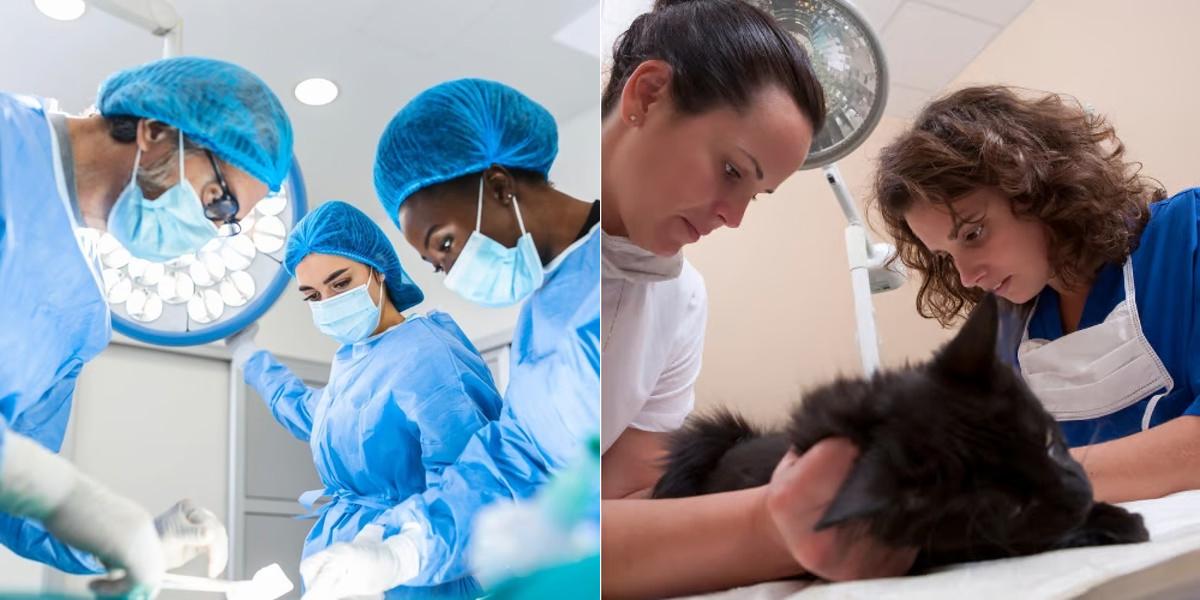Surgical Technician vs Veterinary Assistant

Key Points:
- Surgical Technicians assist doctors during surgery; Veterinary Assistants provide basic care for animals.
- Surgical Technicians typically earn higher salaries than Veterinary Assistants.
- Demand for Surgical Technicians is expected to grow faster than Veterinary Assistants.
- Both jobs require in-person training, but Surgical Technicians may have more extensive educational requirements.
- Surgical Technician training is generally more expensive and takes longer than Veterinary Assistant training.
Are you considering a career in the medical or veterinary field? If so, you may be wondering what the differences are between a surgical technician and a veterinary assistant. Both of these professions play important roles in the healthcare industry, but they have distinct responsibilities and training requirements. In this blog post, we will explore the similarities and differences between surgical technicians and veterinary assistants to help you determine which path is right for you.
Surgical Technician vs Veterinary Assistant: Career Outlook and Salary
Surgical Technician:
- According to the Bureau of Labor Statistics, the median annual wage for surgical technologists was $48,300 as of May 2020.
- The demand for surgical technologists is projected to grow 7 percent from 2019 to 2029, faster than the average for all occupations. This growth is driven by an aging population that requires more surgical procedures.
Veterinary Assistant:
- According to the Bureau of Labor Statistics, the median annual wage for veterinary assistants and laboratory animal caretakers was $28,590 as of May 2020.
- The demand for veterinary assistants is projected to grow 16 percent from 2019 to 2029, much faster than the average for all occupations. This growth is driven by an increasing need for veterinary services as pet ownership continues to rise.
Final Thoughts
Both surgical technicians and veterinary assistants play important roles in the healthcare industry. If you have a passion for human anatomy and surgical procedures, a career as a surgical technician may be the right choice for you. On the other hand, if you have a love for animals and want to make a difference in their lives, a career as a veterinary assistant may be a better fit. Consider your interests, strengths, and career goals when making your decision, and don't hesitate to reach out to professionals in each field for further guidance.
Dreambound extends its programs to various locations. Visit the suggested blogs to delve deeply into the intricate details of the two vocations, learning about their respective requirements and gaining valuable insights on how to kickstart your involvement:




